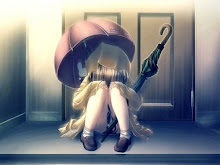i love old people, maybe because ive never felt to be"Apo" neither experience to have my lolo and lola, to be spoiled by them, to run and hide beside them kapag papaluin ako ng parents ko. wala na sila when i was a kid. kalungkot lang, sana may isang taong willing acong samahan sa mga trip ko, tulad ng pagbisita sa mga pasyente sa hospital, aliwin sila, sa tahanan ng mga matatandang inabando na, something like that. kaso hindi niya pa ako nahahanap kaya hindi pa ngyayari yan. ^^
Until late this century, we spent with people of all generations. Now many baby boomers may not have much contact with old folk until they're relatively old themselves.
Thats because we group people by age. We put our three-year-olds in day-care centers, our 13-year-olds in schools and sports activities, and our 80-year-olds in senior citizen homes. Why?
We segregate the old for many reasons: prejudice, ignorance, a lack of good alternatives. Younger people sometimes avoid the old to evade fears of ageing and dying. Death is easier to bear in the abstract. Its much harder to watch someone we love fade before our eyes. Sometimes its so hard that we stay away from the people who need us most.
But there are problems with the age-segregation experiment. Ten 14-year-olds grouped together will form a Lord of the Flies culture – competitive and mean. But ten people aged two to 80 grouped together will fall into a natural age hierarchy that nurtures and teaches them all. For our own mental and social health, we need to reconnect the age groups.
Fortunately, some of us have found our way to the old. And we have discovered that they often save the young.
A reporter moved her family into a block filled with old people. At first her children were disappointed. But the reporter baked banana bread for the neighbors and had her children deliver it and visit. Soon the children had many new friends, with whom they shared food, stories and projects. My children have never been less lonely, the reporter said.
The young, in turn, save the old. Once I was in a rest home when a visitor showed up with a baby. She was immediately surrounded. People who hadn't got out of bed in a week were suddenly ringing for a wheel chair. Even those who had seemed comatose woke up to watch the child. Babies have an amazing power to comfort and heal.
Grandparents are a special case. They give grandchildren a feeling of security and continuity. As my husband put it, my grandparents gave me a deep sense that things would turn out right in the end. Grandchildren speak of attention they dont get from harried parents. My parents were always telling me to hurry up, and my grandparents told me to slow down, one friend said. A teacher told me she can tell which kids have relationships with grandparents: they are quieter, calmer, more trusting.
There was an artist I'll call Maeve who sought truth far from home in ashrams and workshops. Just as Maeve was leaving for Europe one summer, her grandmother fell ill, and the family asked Maeve to care for her. She protested, but there was no-one else. Maeve moved in with her grandmother for six months - handling her medical needs, cooking for her and bathing her – until she died. For the first time in Maeve's life, her concern for another person became as great as her concern for herself. The experience changed her life more than her therapy and gurus.
My life is richer, too, because of the time that I've spent with my elders. Over the past three years I've interviewed my five aunts, listened to family stories, looked at photos and eaten home-cooked meals. As a result I better understand my own parents and our history. I've also learned the art of ageing. I've come away feeling more accepting, more grateful. And I have witnessed the incredible calculus of old age: as more is taken, there is more love for what remains.
To learn from the old, we must love them - not just in the abstract but in the flesh – beside us in our homes, businesses and churches. We must work together to build the kinds of communities that allow us to care for one another.
Why we need to reconnect the young and the old
By Mari Pipher
(pp. 63-64, November 1999 Issue, Reader's Digest)




No comments:
Post a Comment